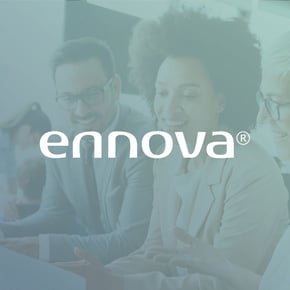Employees are an organization's most important asset, and there are no other areas that have such a heavy and broad effect on an organization's top and bottom lines. Yet few organizations really put their employees at the top of their strategic agenda by considering employee experience.
|
Go to: |
What is Employee Experience?
Employee Experience (EX) is defined as the sum of all the experiences a person has as a candidate, employee, manager, freelancer, alumnus, and so on at or with an organization throughout their work life and personal life (exposed, observed, felt, and sensed) from the time the person hears about the organization, is employed, and has an everyday experience of the organization until the time the person leaves, becomes an alumnus, and perhaps is employed again at a later time.
There are many more terms and conceptual frameworks used within the EX discipline. To make it less confusing, make sure to familiarize yourself with all the most important EX concepts.
Why is Employee Experience Important?
The business environment is rapidly changing and organizations are constantly striving to attract and retain top talent. Employee Experience is a way for organizations to stay ahead of their competition for several reasons:
1. INCREASED EMPLOYEE ENGAGEMENT:
A positive employee experience has a direct impact on boosting engagement levels. When employees feel appreciated, supported, and included, they are more likely to be deeply passionate about their work, actively contribute, and go the extra mile for their organization.
2. ENHANCED EMPLOYEE LOYALTY:
Retaining top talent is crucial for companies. By cultivating a fulfilling employee experience, organizations can minimize turnover rates, as content and engaged employees are more likely to remain with the company for extended periods. This not only saves the organization significant costs associated with hiring and training new employees but also fosters a sense of loyalty and commitment among the workforce.
3. INCREASED PRODUCTIVITY:
When employees have a seamless and positive experience at work, without unnecessary obstacles or frustrations, they become more productive. This increased productivity not only translates to measurable outputs but also to qualitative ones, fostering innovation and a higher quality of work.
4. STRONGER EMPLOYER BRANDING:
The reputation of a company as an employer plays a pivotal role in attracting top-tier talent. A robust and positive EX can transform employees into brand ambassadors, helping to draw in more like-minded and high-quality candidates.
5. INCREASED CUSTOMER SATISFACTION:
The connection between employee experience and customer satisfaction is undeniable. When employees are happy and engaged, they are more committed to providing exceptional customer service and finding innovative solutions. This ultimately leads to happier customers who are more satisfied with their experience.
In essence, the importance of employee experience cannot be understated. It's not just a trendy HR buzzword—it's a fundamental shift in how businesses view their most valuable asset: their people. By mastering the EX discipline, companies position themselves to thrive in an era where the line between organizational success and employee well-being is increasingly interconnected.
How to Master the EX Discipline?
In striving to master employee experience, we have observed that an organization must hone its focus in these four general areas:
1. Creating a strategic framework
The first area to focus on is creating a strategic framework. You must get your upper management engaged, establish your EX “why” in financial terms, create an organized EX unit, and build a strong EX vision. All this requires that your CEO believes that EX is the way forward and is convinced that it is a good idea to spend time, money, and energy on generating the best employee experience. So creating a strategic framework starts by getting your CEO to prioritize EX.
Make sure you Create the Best Employee Experience, Because...
Satisfied and loyal employees are better
2. Establishing a data-driven culture
The second area to focus on to master the employee experience is to make sure you have a data-driven culture in the organization. It is essential to your EX transformation to establish a data-driven culture to serve as a solid foundation of data. To create a serviceable data-driven culture, a business must gather feedback intelligently throughout the year and not hyper-frequently just because it can. Data from questionnaires, however, is just one source. Data from HR systems is another source, while qualitative studies, transaction data, messaging data, and so on are other types.
3. Implementing a brand new way of working
In your efforts to lift the employee experience to a new level, you will need to master some new techniques, tools, and methods. Employees, leaders, or top management need to be trained to view the organization through the employees' eyes to assume a genuine outside-in perspective. In that context, employee journey mapping is a strong approach to use.
4. Start transforming the employee experience
Bringing about a shift in an organization's EX level requires a massive transformative focus. But just getting the ball rolling is also an important step that you have to take today rather than tomorrow.
The four areas mentioned above should be anchored, owned, and facilitated by HR, with local anchoring and executive power throughout the entire organization.
Get in touch with usReady to Strengthen Your Employee Experience?
Our experts are ready to help you and your organization collect the right data and turn it into action. From survey setup to consulting, we're with you every step of the way.
|

